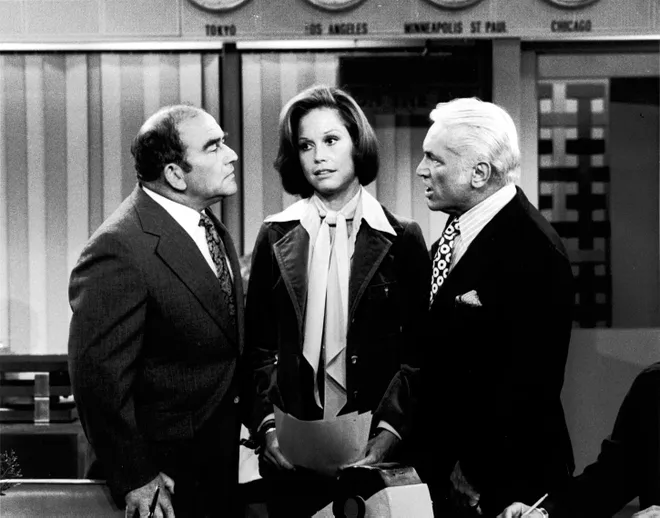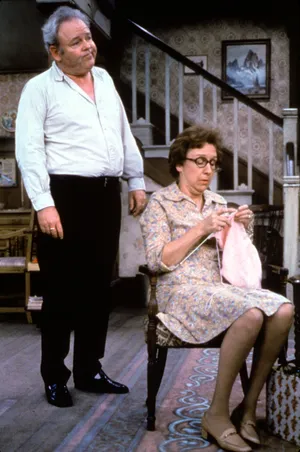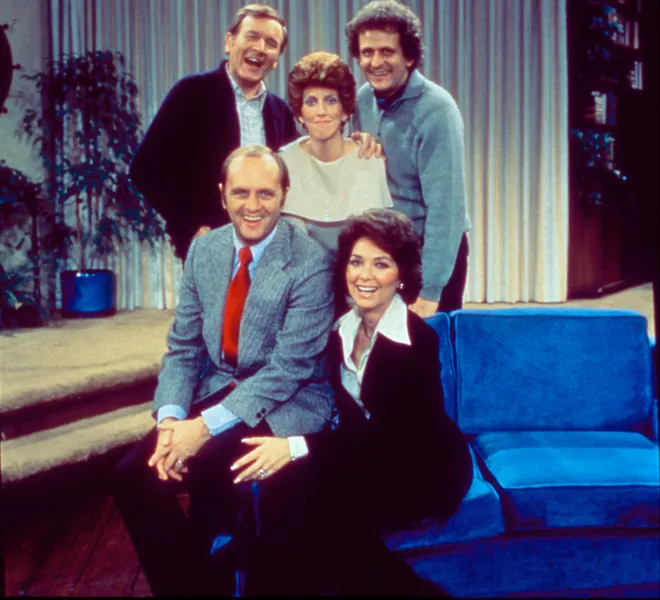50 years later, a look back at the best primetime lineup in the history of television
Due to last summer's twin labor strikes, the broadcast television season opened last month with the kind of scripted-content shortage unseen since 1980, when a summer-long actors' walkout led to a piecemeal unveiling that stretched to mid-December.
At best (assuming the ongoing actors' strike is settled soon), viewers can look for new episodes of some scripted programming in late winter or early spring. That’s assuming they look to broadcast TV at all by that point, as networks continue to lose ground to streamers and continue to hope for that one new show each year that keeps their lights on.
Imagine a time when a broadcast season began with five of TV’s best and most popular shows airing back-to-back on the same night. Fifty years ago, it happened. CBS’s 1973-74 Saturday schedule was hailed as TV’s best-ever night of television, a crown it still wears.

And all it took to make it happen was a failed interfaith marriage.
In September 1972, top-rated CBS launched a sitcom called "Bridget Loves Bernie," about newlyweds of different backgrounds – she’s Catholic, he’s Jewish – navigating a union that has their families in weekly comedic conflict. Slotted on Saturday after then-No. 1 All in the Family, the new comedy became a Top 10 hit.
But it seemed that even in the changing primetime landscape of the early 1970s, the use of religion as the weekly punchline was objectionable, and from its premiere "Bridget Loves Bernie" faced protests in the Jewish community and scrutiny from the press. (In an interview years later, star Meredith Baxter said the show received bomb threats.) So at the end of the season, CBS chose to end the series, giving it an historical asterisk as the highest-rated first-year show ever canceled.
CBS then found itself with a post-"All in the Family" slot on its important Saturday schedule, where young sitcoms "The Mary Tyler Moore Show" and "The Bob Newhart Show" had also established a presence. Picked to fill the gap: "M*A*S*H," a critical but low-rated favorite in need of exposure.
Thus, the Saturday lineup became: "All in the Family" (which had just won its third Emmy as best comedy); "M*A*S*H," coming off a first-year best-comedy nomination, "Mary Tyler Moore" (winner of three of that year’s four comedy-acting Emmys) and rising star "Bob Newhart." Brought in to cap the night: "The Carol Burnett Show," a perennial Emmy winner entering its seventh season. The result was a three-hour block of top-to-bottom classics.
Classic TV:'M*A*S*H' turns 50: How Alan Alda's wartime CBS dramedy changed TV, and set ratings record

“It represented an evening of quality programming that’s never quite been duplicated,” writes Ed Gross in a 2017 Woman’s World essay. “Impressive then, but mind-blowing in retrospect.”
Much of the quality was due to the writing, as prime-time storytelling at the time was shifting away from traditional sitcoms to more people-based comedy. CBS’s Saturday half-hours were leading the charge, with relatable situations, grounded characters and contemporary topics.
Among the season’s episodes: “Edith’s Christmas Story,” about Edith Bunker’s breast-cancer scare, and “Lionel’s Engagement,” which introduced on "Family" Lionel Jefferson’s interracial soon-to-be-in-laws; “George,” about by-the-book "M*A*S*H" Major Frank Burns’ attempt to have a gay soldier dishonorably discharged; “The Lars Affair,” which introduced Betty White as Happy Homemaker Sue Ann Nivens; and writer Treva Silverman’s double-Emmy-winning “The Lou and Edie Story,” about the beginning of the end for newsroom boss Lou Grant’s marriage on "Mary."
The season also marked the first appearance on "Carol Burnett" of “The Family,” a darkly funny sketch about a dysfunctional Southern family that became the series’ most popular recurring bit.
Birthday:Carol Burnett turns 90 with TV songs, laughs and Cher rocking Bob Mackie: 'I wanted it this way'

By the end of the 1973-74 season, all four sitcoms ranked among TV’s Top 15 shows. ("Burnett," acclaimed but never a ratings juggernaut, ranked 27th.) But it was at that year’s Emmys that the three-hour block cleaned up. Three of the four Saturday sitcoms were among the five nominees for best comedy, and all nine nominees in the comedy supporting actor and actress categories came from the quartet, as did all the nominees for comedy writing and directing.
Final Emmy tally for CBS from the Saturday lineup alone: 12 wins, and 29 nominations. Except for one award, every comedy-series Emmy at the 1974 awards went to a CBS Saturday show.
Through the years, other lineups have rivaled the famed CBS block. Chief among them was ABC’s 1977-78 Tuesday ("Happy Days," "Laverne & Shirley," "Three’s Company," "Soap," and "Family"), but ABC’s night didn’t offer the same prestige factor. Others that did, like NBC’s 1984-85 Thursday ("The Cosby Show," "Family Ties," "Cheers," "Night Court," "Hill Street Blues"), and its must-see-TV Thursdays variants in the 1990s always came up short. Each tended to include timeslot-favored lesser-thans ("Night Court," "The Single Guy") that gave their lineups a Jenga-like fragility.
The greatest night in television history lasted just one season. The following year, CBS moved "M*A*S*H" to Tuesdays, which helped that night but did little for Saturday, where it was replaced by the short-lived "Paul Sand in Friends & Lovers." Saturdays on CBS never fully recovered, and by the mid-1990s the network got out of the comedy business altogether on the night, where today networks air repeats and college football.
Today, on a vastly different television landscape, the idea of assembling night-long blocks of programming ―if not the concept of TV scheduling in general ― is almost quaint. But for TV aficionados, the 1973-74 CBS Saturday schedule is still remembered as what TV Insider labeled “history-made” in 2017.
“One network, one night of five classic comedies, each appearing in TV Guide’s 60 Best Series of All Time list, three of them placing in the Top 10. Wow. Just wow.”

Disclaimer: The copyright of this article belongs to the original author. Reposting this article is solely for the purpose of information dissemination and does not constitute any investment advice. If there is any infringement, please contact us immediately. We will make corrections or deletions as necessary. Thank you.







